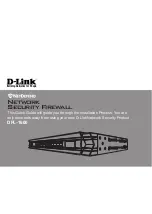
PTP 58600 reference information
Chapter 4 Reference information
phn-0896_009v003
4-74
UNDER DEVELOPMENT
Feb 2010
PTP 58600 regulatory compliance
The PTP 58600 complies with the regulations that are in force in the USA, Canada and
Europe. The relevant notifications are specified in this section.
PTP 58600 FCC and IC notification
U.S. Federal Communication Commission (FCC) and Industry Canada (IC) Notification.
This system has achieved Type Approval in various countries around the world. This
means that the system has been tested against various local technical regulations and
found to comply. The frequency band in which the system operates is ‘license exempt’
and the system is allowed to be used provided it does not cause interference. Further,
the licensing authority does not guaranteed protection against interference from other
products and installations.
This device complies with part 15 of the US FCC Rules and Regulations and with RSS-
210 of Industry Canada. Operation is subject to the following two conditions: (1) This
device may not cause harmful interference, and (2) This device must accept any
interference received, including interference that may cause undesired operation. In
Canada, users should be cautioned to take note that high power radars are allocated
as primary users (meaning they have priority) of the 5650 – 5850 MHz spectrum and
these radars could cause interference and/or damage to license-exempt local area
networks (LELAN).
For the connectorized version of the product and in order to reduce potential radio
interference to other users, the antenna type and its gain should be so chosen that the
Effective Isotropically Radiated Power (EIRP) is not more than that permitted for
successful communication.
This equipment has been tested and found to comply with the limits for a Class B
digital device, pursuant to Part 15 of the US FCC Rules and with RSS-210 of Industry
Canada. These limits are designed to provide reasonable protection against harmful
interference in a residential installation. This equipment generates, uses, and can
radiate radio-frequency energy and, if not installed and used in accordance with these
instructions, may cause harmful interference to radio communications. If this
equipment does cause harmful interference to radio or television reception, which can
be determined by turning the equipment on and off, the user is encouraged to correct
the interference by one or more of the following measures:
•
Increase the separation between the affected equipment and the unit;
•
Connect the affected equipment to a power outlet on a different circuit from that
which the receiver is connected to;















































